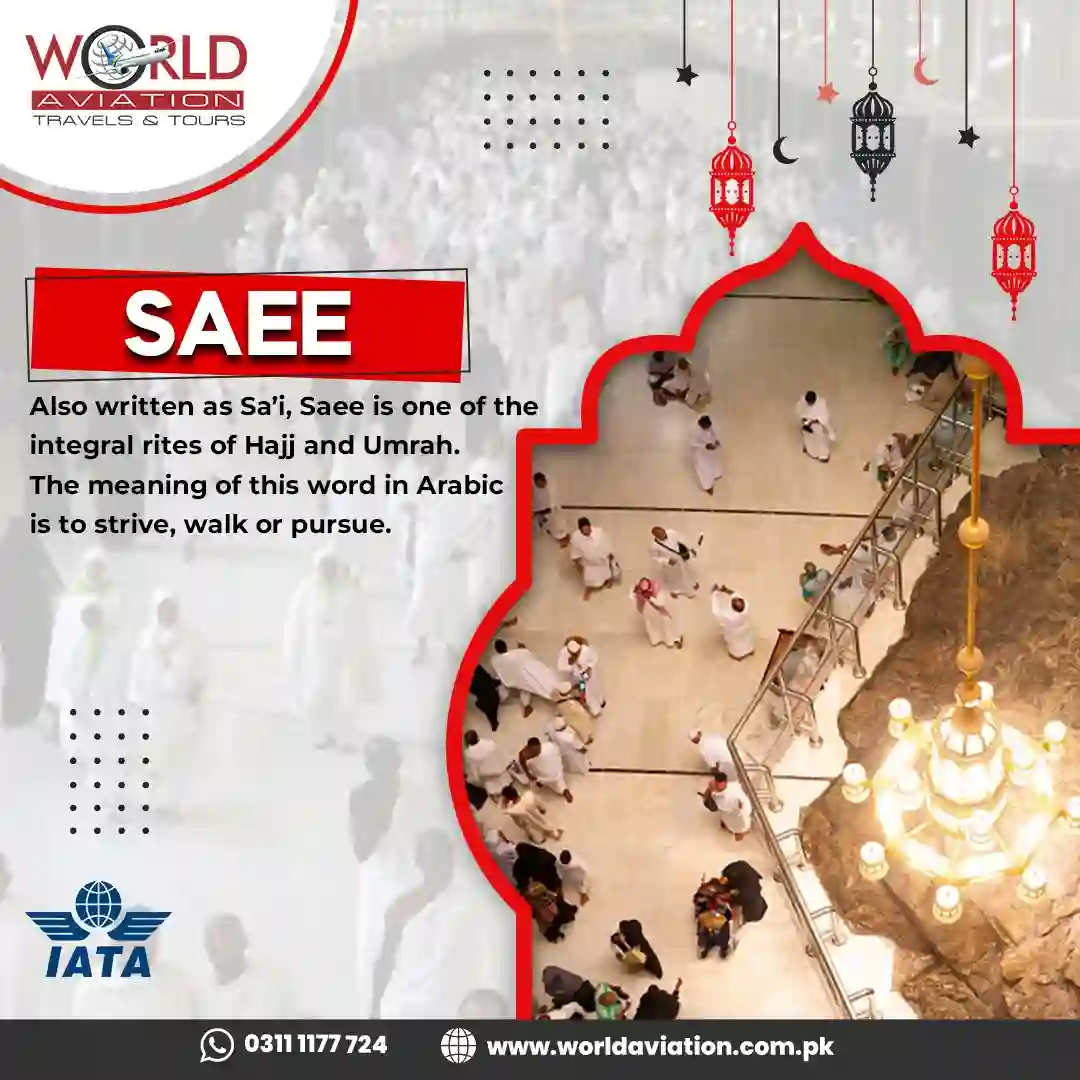
Umrah is a pilgrimage that Muslims undertake and is definitely a sign of their devotion to Allah (SWT). It depends on the Sunnah and the teachings of the Holy Prophet (PBUH). With the help of Umrah Packages from Lahore, Pakistan, the pilgrimage—which is a visit to the House of Allah (SWT)—can be performed at any time of the year. In contrast to the “more notable major journey” of the Hajj, it is referred to as a “minor journey.” However, in the view of Allah (SWT), it is held in the highest regard and wisdom.
You will find an ideal and simple guide to performing Umrah in this post, which also provides instructions on how to put on Ihram and explain the rituals associated with performing Umrah.
The Arabic word for visit, ‘timaar, is where the term ‘umrah’ originates. As a result, conducting Umrah according to Islamic terminology entails visiting the Kaaba, performing Tawaaf (circumambulation) around it, and again passing through Safa and Marwah. A person performing Umrah delays taking his Ihraam by getting his hair cut short or shaven. You can conduct Umrah on the same days as Hajj and other occasions.




Muslims dress in what is known as ihram, which is also the status that travellers enter once they have decided to perform the Hajj or Umrah. The ihram is used for three reasons: to make one humble (regardless of wealth or poverty); to demonstrate unity among Muslims as they perform Umrah, including in their dress; and to serve as a reminder of the garment we will carry after leaving this world.

Men’s Ihram clothing for pilgrimage consists of two white cloths, free from seams, buttons, or hems, ensuring simplicity and modesty.

For women participating in the pilgrimage, the Ihram dress is a loose-fitting robe that covers the entire body, ensuring modesty and adherence to the required attire.
The lower cloth, known as the Izar, is folded over the waist, covering the area between the navel and feet, maintaining the required attire for the pilgrimage.

The Ihram robe for women may have buttons and seams, but it should be devoid of any adornments or colors. It is recommended to opt for a white or dark-colored robe.
The upper cloth, called the Rida, consistently covers the left shoulder, while the right shoulder remains uncovered during the Tawaf, the circumambulation around the Kaaba.

During the pilgrimage, women should keep their hands and face uncovered while wearing the Ihram dress, maintaining a state of simplicity and humility.
During the pilgrimage, it is important to refrain from wearing underclothing, socks, or any additional garments, while also keeping the head uncovered as a symbol of simplicity and humility.

Women should choose shoes that provide full coverage to the entire foot, ensuring comfort and practicality during the pilgrimage.
When selecting footwear for the pilgrimage, opt for options that leave the lower legs and toes exposed, ensuring compliance with the Ihram guidelines for men.

Tawaf, an integral part of Hajj and Umrah, involves circling the Ka’ba multiple times in a counterclockwise direction. This sacred act symbolizes the unity and devotion of believers to the worship of the One God. Pilgrims move together in harmony, praying to Allah as they circle the Ka’ba. Tawaf holds deep significance in showcasing the bond and collective faith of the worshippers.
There are seven different sorts of tawaf:

Saee, derived from the Arabic verb “Sa’a” meaning “to walk,” “to strive,” or “to seek after,” is a vital ritual of Hajj and Umrah. It involves walking back and forth multiple times between the small hills of Safa and Marwa, located near the Kaaba in Masjid al-Haram. This act holds deep significance as a symbol of dedication and perseverance in the spiritual journey of pilgrims.

During Saee, male travelers energetically walk between the green lights positioned on the side of the walls closer to Safa. On the other hand, female travelers walk at a regular pace throughout the seven rounds. If you are performing Saee with an elderly or disabled traveler, it is permissible to avoid running between the green lights zone. Upon reaching the foot of Safa, verses are recited, affirming the significance of this sacred journey.
The Quran (2:158) affirms that As-Safaa and Al-Marwah are symbolic of Allah and performing the going (tawaaf) between them during Hajj or Umrah is not a sin. It emphasizes that those who engage in voluntary acts of goodness are recognized and known by Allah.
When ascending Mount Safaa, try to reach a point where the Kaaba is visible. Facing the Kaaba, recite the designated dua (supplication) three times, followed by personal supplications between each recitation. This moment allows individuals to connect with the divine and offer their heartfelt prayers.
“Allahu Akbar, Allahu Akbar, Allahu Akbar. Laa ilaaha il-lall-llaahu wadahu la shareeka lahu, lahul mulku wa lahul hamdu, wa huwa ‘alaa qulli shay’in qadeer. Laa ilaaha il-lall-llaahu wahdahu, anjaza wa’dahu, wa nasara ‘abdahu, wa hazamal ahzaaba wahdahu”
Proceed towards Marwah, briskly passing between the fluorescent green lights (for men only). Upon reaching Marwah, ascend if possible, and repeat the same actions as when ascending Safaa, except for reciting the previously mentioned verses, as they are recited only during the first ascent of Safaa. This completes the cycle of Saee between Safa and Marwah.

Upon completing the seven rounds of Saee, it is customary for male pilgrims to shave their heads, while female pilgrims are advised to trim a portion of their hair. Men should shave their entire heads, while those who choose to trim should do so from all over their heads. Shaving is preferred, as the Prophet (PBUH) supplicated three times for those who shaved their heads, and once for those who trimmed their hair. This act holds special significance in the pilgrimage journey.
For women, it is recommended to trim their hair by the length of a fingertip. This practice holds significance in the pilgrimage journey for female pilgrims.
Now, female pilgrims are not required to have a male relative accompany them to complete their Umrah, as the Mahram condition has been lifted. Additionally, age restrictions have been removed for all pilgrims. Saudi Arabia has opened its gates for Umrah, allowing pilgrims to enter on transit visas free of charge. This recent development has made the pilgrimage more accessible and convenient for female travelers and people of all ages.
Umrah is a journey that encompasses various essential activities. It begins with entering the state of ihram, followed by performing tawaaf (circumambulation around the Kaaba), saee (walking between Safa and Marwa), and finally, shaving the head or trimming the hair. These significant rituals complete the Umrah experience. If you are planning to embark on this spiritual journey in 2024, WorldAviation Travel Agency in Lahore is here to assist you with all your travel needs. Our dedicated team ensures a seamless and memorable Umrah experience, providing you with the opportunity to fulfill this sacred obligation. May Allah bless you with the chance to perform Umrah in 2024 through our exceptional services. Contact WorldAviation Travel Agency today to plan your spiritual journey.












Embark on unforgettable journeys with World Aviation, the renowned travel agency in Lahore.
info@worldaviation.com
